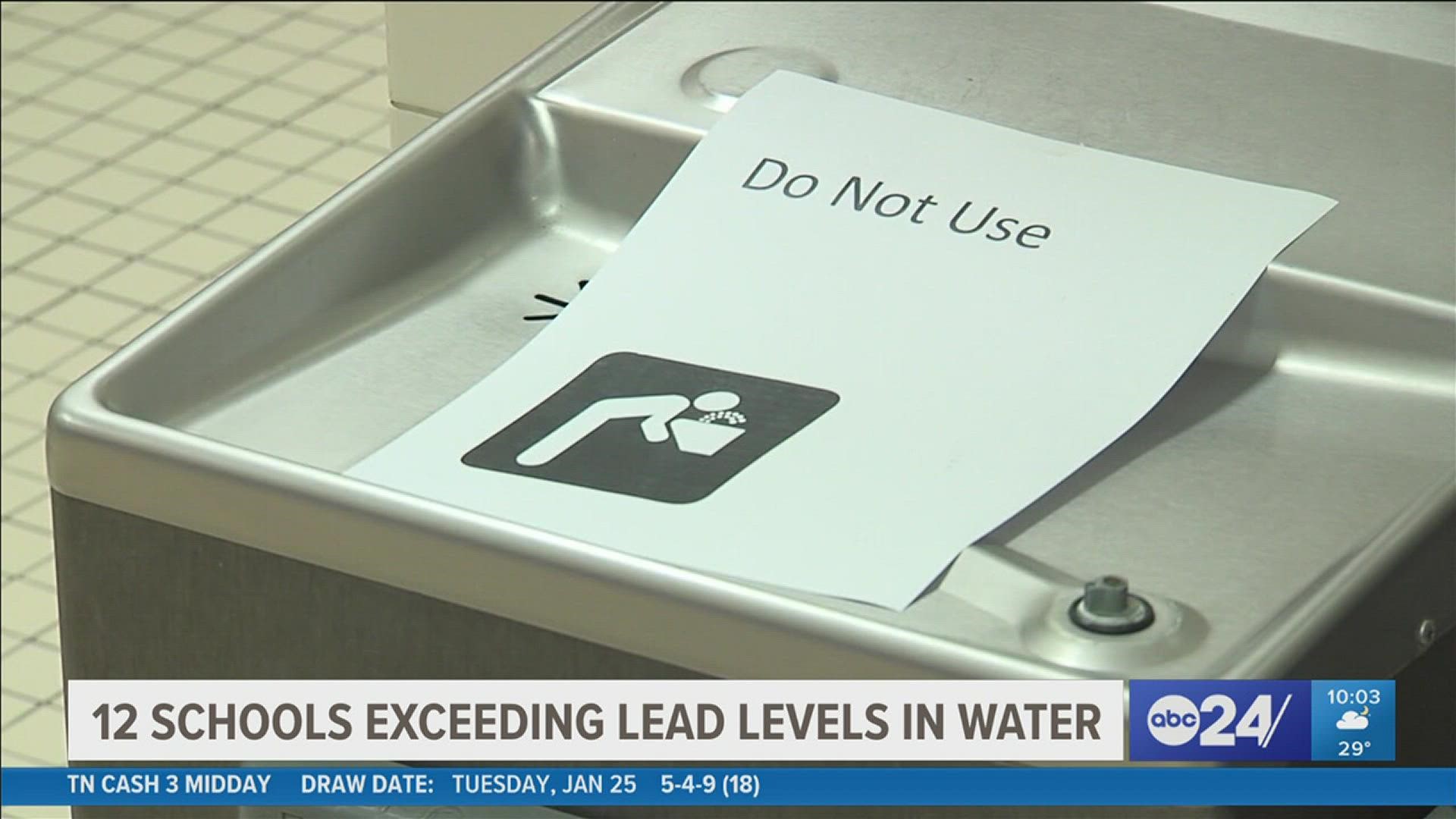MEMPHIS, Tenn. — Shelby County Schools said Tuesday 12 schools in the district have water sources which exceed acceptable levels of lead.
SCS said the latest round of testing was conducted during the 2021 winter break. They also said all drinking water sources have remained offline during the COVID-19 pandemic.
Which schools had high levels?
The following schools were found to have one or more water sources with lead levels that equal or exceed twenty parts per billion (20 ppb). That means SCS must perform immediate corrective action and report to state and local agencies, as well as make sure parents and guardians of students are aware.
- White Station High School
- White Station Middle School
- Keystone Elementary School
- Northaven Elementary
- Woodstock Middle School
- Hamilton Middle School
- Sheffield Elementary School
- Southwest Career and Technical School
- Hanley Pre-K
- Raleigh-Bartlett Meadows Elementary School
- Fairview/Middle College/Maxine Smith STEAM
- Raineswood Residential Training Center
The last testing was done in 2019, when 35 schools made the list. You can see the full list of results for this latest round of testing HERE.
Were students exposed?
In 2019, the district said students were potentially exposed to lead, but they tested fine and had no exposure.
In the 12 new schools, drinking water sources have been offline due to the pandemic. Students have been provided bottled water, which SCS will continue to do.
What's being done to fix the issue?
SCS officials said COVID-19 relief funding is being used to implement a plan that includes replacing all drinking water sources and installing bottle filling stations.
The district announced they're investing $5 million from COVID-19 relief funds to purchase and install 3,000 water bottle filling stations in all district-managed schools and administrative buildings.
The initiative will minimize plastic waste, reduce costs and provide better-tasting filtered water.
Parents are encouraged to buy a water bottle for their children to use at those soon-to-be installed filling stations.
You can see the remediation plan SCS presented last spring HERE. SCS said plans are in progress, but they had to reprioritize phases ‘due to the impact of COVID-19 and supply chain shipment delays.’

